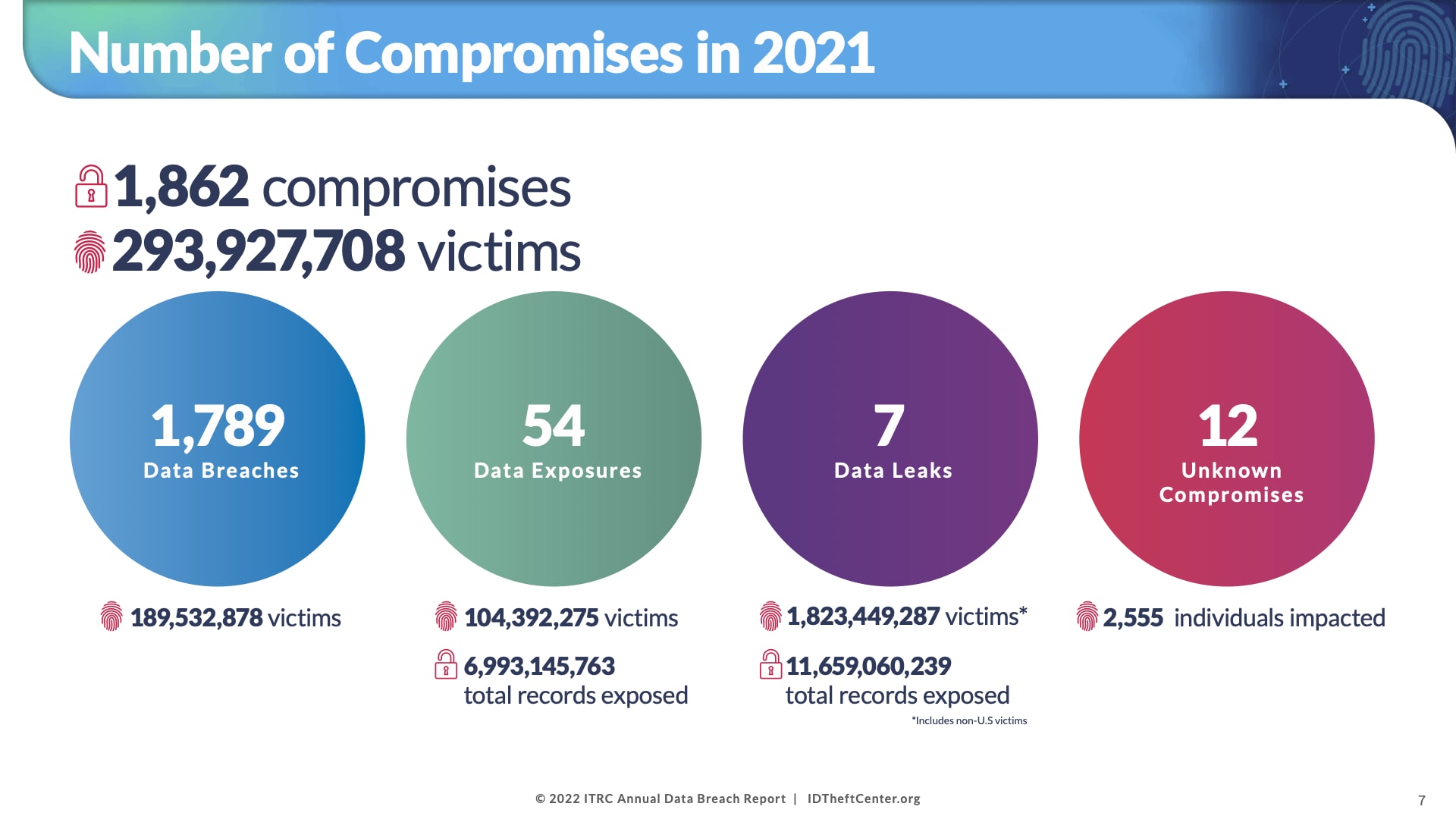Qualifying for cyber insurance with secure password management
- Resources
- Qualifying for cyber insurance with secure password management
For businesses, an ever-increasing online footprint means a non-stop treasure trove of data for cyber-criminals and a steady reminder of unfortunate data breaches. According to the Identity Theft Resource Center’s 2021 Annual Data Breach Report, the overall number of data compromises (1,862) was up more than 68% compared to 2020.
Companies contending with data breaches face a host of post-breach challenges. Often, they have to contend with reputational damage and angry customers, reduced revenue, and in some cases, legal investigations.
Precarious security practices also put businesses in a uniquely vulnerable position. The second annual Bitwarden 2022 Password Decisions Survey revealed 92% of IT decision makers reuse passwords across multiple sites. Compared to last year, the number of respondents sharing passwords via email skyrocketed from 39% to 53% due in part to the sudden adjustment to remote work and increased rate of employee turnover. And, 30% find themselves resorting to shadow IT - even though the long-term security impact is potentially ruinous.
With breaches such as Solar Winds and Colonial Pipeline top of mind, there is a continuous emphasis on the steps businesses can take to protect themselves against the fallout of a data breach. One option, that may have been considered a ‘nice to have’ just a few years ago but is increasingly viewed as a necessity, is cyber insurance.
In its 2021 cyber insurance report the Government Accountability Office (GAO) found that data from a global insurance broker showed the proportion of existing clients electing coverage for cyber insurance rose from 26% in 2016 to 47% in 2020.
According to the Federal Trade Commission, businesses who are at risk of cyberattacks should first decide whether they want to deploy first-party coverage (protects your data, including employee and customer information), third-party coverage (protects you from liability if a third-party brings claims against you), or both. For example, first party coverage typically includes (among other things) a business’s costs related to legal counsel, recovery and replacement of lost or stolen data, lost income due to business interruption, and fees, fines, and penalties related to the breach. Meanwhile, third-party coverage might include payments to consumers, claims and settlements expenses, and accounting costs.
All this sounds ideal, and it is, in a security climate of this nature. But, finding a cyber insurer who will cover you isn’t a guarantee. In most cases, businesses will need to show they are making a good faith effort to protect their critical data. This is quite understandable. As Marsh notes in its State of the US Cyber Insurance Market Report:
“Cyberattacks, including ransomware, have soared over the past year, contributing to an increasingly difficult cyber insurance market characterized by climbing rates, reduced insurer appetite, tighter underwriting, and an increased focus on systemic risks report.”
One surefire strategy for reducing systemic risks and demonstrating to a cyber insurer that you’re taking security seriously? Deploy a password manager. Password managers are one of the most straightforward, commonsensical technologies businesses can utilize to protect their data.
Here are some reasons why you should take a closer look at Bitwarden if you don’t utilize a password manager but are looking to qualify for cyber insurance:
Bitwarden allows users to generate strong and unique passwords
Bitwarden allows users to access passwords from any device - a must-have in remote and hybrid workplaces
Bitwarden quickly enable teams to share passwords among colleagues easily and securely
Bitwarden establishes a first line of defense against data breaches by enforcing strong password policies for employees
Bitwarden is built on open source security, utilizes end-to-end encryption, and is audited by third-parties providing official security assessments and penetration testing
Many brokers and providers offer favorable rates to companies that have deployed password managers to all of their employees
Using a business password management solution like Bitwarden will help meet cyber insurance requirements and reduce cyber insurance premiums. Level up your cybersecurity today with a free enterprise trial or a free individual account.
"There is no reason to believe the level of data compromises will suddenly decline in 2022. As organizations of all sizes struggle to defend the data they hold, it is essential that everyone practice good cyber-hygiene to protect themselves and their loved ones from these crimes."
Get powerful, trusted password security now. Pick your plan.
Free
$0
per month
Free Forever - no credit card required!
Get a Bitwarden vault
- Unlimited devices
- Passkey management
- All the core functions
- Always free
Share vault items with one other user.
Premium
Less than$1
per month
$10 billed annually
Enjoy premium features
- Integrated authenticator
- File attachments
- Emergency access
- Security reports and more
Share vault items with one other user
Families
$3.33
per month
Up to 6 users, $40 billed annually
Secure your family logins
- 6 premium accounts
- Unlimited sharing
- Unlimited collections
- Organization storage
Share vault items between six people
Pricing shown in USD and based on an annual subscription. Taxes not included.
Teams
Resilient protection for growing teams
$4
per month / per user billed annually
- Secure data sharing
- Event log monitoring
- Directory integration
- SCIM support
Includes premium features for all users
Enterprise
Advanced capabilities for larger organizations
$6
per month / per user billed annually
- Enterprise policies
- Passwordless SSO
- Account recovery
- Self-host option
Includes premium features and complimentary families plan for all users
Get a quote
For companies with hundreds or thousands of employees contact sales for a custom quote and see how Bitwarden can:
- Reduce cybersecurity risk
- Boost productivity
- Integrate seamlessly
Bitwarden scales with any sized business to bring password security to your organization
Pricing shown in USD and based on an annual subscription. Taxes not included.

